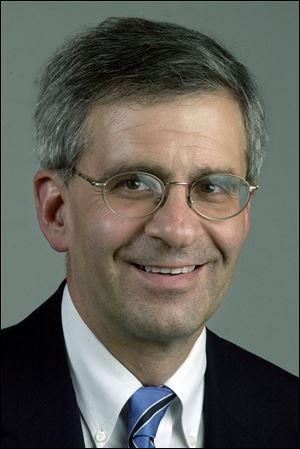
COMMENTARY
Lincoln despaired of winning re-election, but prevailed
6/8/2014
Shribman
On June 8, 1864, the delegates of the National Union Party — a hastily assembled group of Republicans and politicians known as War Democrats — gathered in Baltimore for its nominating convention.
The country was battered and bloodied. President Abraham Lincoln had elevated the Civil War to a moral crusade — a fight now not only for union but also for freedom.
Yet the killing continued, as did slavery. Lincoln had reason to fear that holding the moral high ground might not ensure that he held the country — or that he would continue to hold the White House.
Everywhere on the convention floor, there was brave talk but little confidence. As the rhetoric soared, the national spirit plunged. America’s heart hurt, and the hurt reached the heart of America, in the Confederate states, of course, but in the North as well.
Today the name Leonard Swett, a Republican delegate from Illinois, is known only by Lincoln specialists. The lawyer was a Maine native who settled in Illinois and was drawn into Lincoln’s circle, by some accounts becoming his confidant, at least on political matters. He knew Lincoln wanted to be renominated.
At the convention, Swett rose to his feet and said: “Mr. Lincoln was our citizen, but when we gave him, then, to the country we felt that our claims upon him were relieved; and now, more than ever, we feel that this Convention, in re-nominating him, has nominated not especially the child of Illinois, but the favored child of this great nation.”
It was a run-on sentence — but a sentence to run on. Shortly thereafter, a delegation from the convention descended upon Lincoln, who said his renomination was less a “personal compliment” than a symbol of what he described as “a higher view of the interests of the country for the present and the great future.”
He added: “I have not permitted myself, gentlemen, to conclude that I am the best man in the country; but I am reminded, in this connection, of a story of an old Dutch farmer, who remarked to a companion once that it was ‘not best to swap horses when crossing streams.’ ”
And yet the stream Lincoln was crossing was perilous indeed. By midsummer, no one, especially the president, had a clear view of the perilous twin campaigns ahead — one military, one political.
On Aug. 23, Lincoln wrote from the executive mansion: “This morning, as for some days past, it seems exceedingly probable that this Administration will not be re-elected. Then it will be my duty to so cooperate with the President-elect, as to save the Union between the election and the inauguration; as he will have secured his election on such ground that he can not possibly save it afterwards.”
Lincoln pressed this memo in half, passed it among members of his cabinet, and insisted they sign the folded piece of paper without reading it.
The campaign went on, in both senses of the word. As Election Day neared, the opposing Democratic Party’s core position — that Lincoln had presided over four years of failure — looked small-minded and wrongheaded.
Lincoln took the November election, winning seven times as many states as his Democratic challenger and onetime top general, George McClellan, and 10 times as many electoral votes.
In a shining March moment the following year, Lincoln dedicated the country to “malice toward none” and “charity for all,” as powerful a legacy as his Emancipation Proclamation. The next month, the war ended and Lincoln was assassinated.
America’s sadness marched on, along with this truth: Lincoln won three of the most important campaigns in the nation’s history — two for himself, one for the North, but really all of them for the country he served and helped define.
David Shribman is executive editor of the Pittsburgh Post-Gazette.
Contact him at: dshribman@post-gazette.com